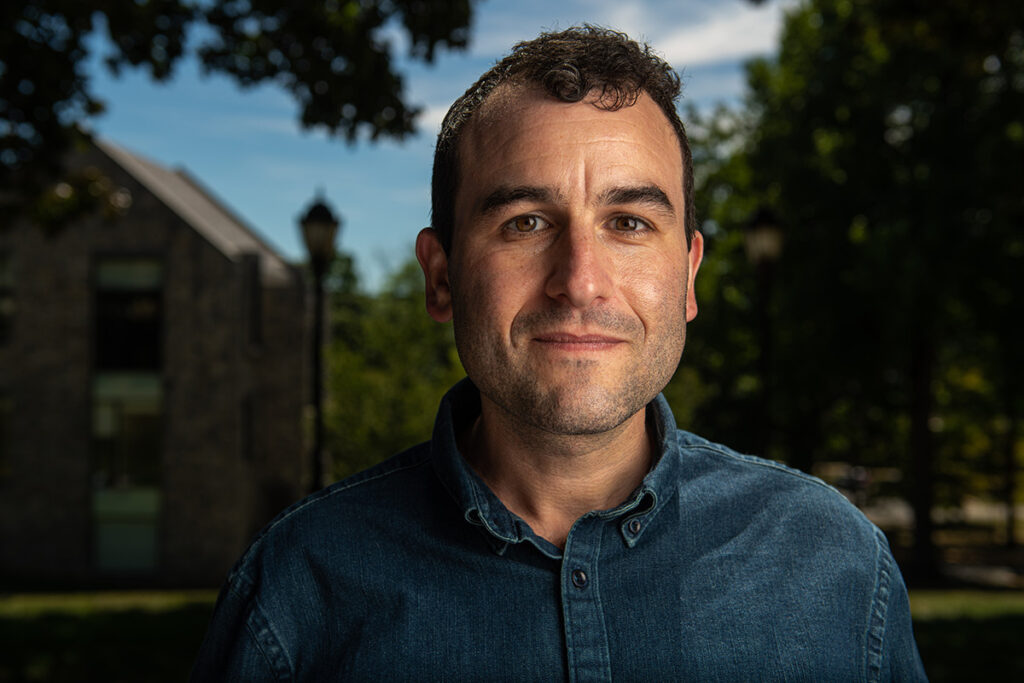Ezra Lencer

I study: ”I started out studying these fish that live on San Salvador Island in the Bahamas. They’re called pupfish, and three species evolved from a single common ancestor less than 10,000 years ago. These pupfishes have different jaw shapes and sizes, which we think are adaptations to eating different food types. For my thesis, I was really interested in what genes change your jaw size, from a really long jaw used in one species to eat slime and scales, to a really short jaw used in a different species to eat snails.
“I did extensive genetics and genomics work, which is really just looking at whole genomes to ask what genes are turned on differently and how they play a role in creating these jaw shapes and sizes. I published a series of papers that helped establish these fish as a model for understanding evolutionary change.”
Why? ”My research is about understanding the genetic basis to phenotype. This includes discovering what happens when species start to diversify during the early stages of evolution. But more recently my research is asking deeper questions about the origin of vertebrates and the evolution of this novel cell type called neural crest cells, which only vertebrates have.
“Neural crest cells are stem cells that make much of our skull and face, but they also make all of our pigment, our peripheral nervous system, ganglia, parts of our heart, and other traits.
“Getting interested in biology started early for me. I was one of those kids who was often mucking around in water. I used to love catching fish and looking at them. I was the kid who had leeches on my legs; that was my childhood. In some sense, this gave me the aesthetic of caring about nature and caring about aquatic vertebrates.”
This fall I’m teaching: ”A new quantitative biology course, to help students understand how quantitative methods are used to study biology, and a seminar course called Evolutionary Genomics that will explore how genes contribute to the study of evolution.”
What students can expect from me: ”They can expect me to always be excited, to be engaged with them, and to really challenge them to come up with their own ideas and find new ways of approaching science and biology.”
I’m excited to be here because: ”What excites me about Lafayette are the student body and the culture here that has this beautiful balance between being able to serve as a teacher, mentor, and to really explore ideas through research and through classes, to really maintain scholar-teacher mentorships. This is the kind of community that makes academia fun and fulfilling.”
Getting to know me: “Outside of science, I make sure I’m constantly reading fiction. I’m an avid reader, and if people know where there are good bookstores, I always love those kinds of recommendations. I just started reading Dept. of Speculation by Jenny Offill.”
